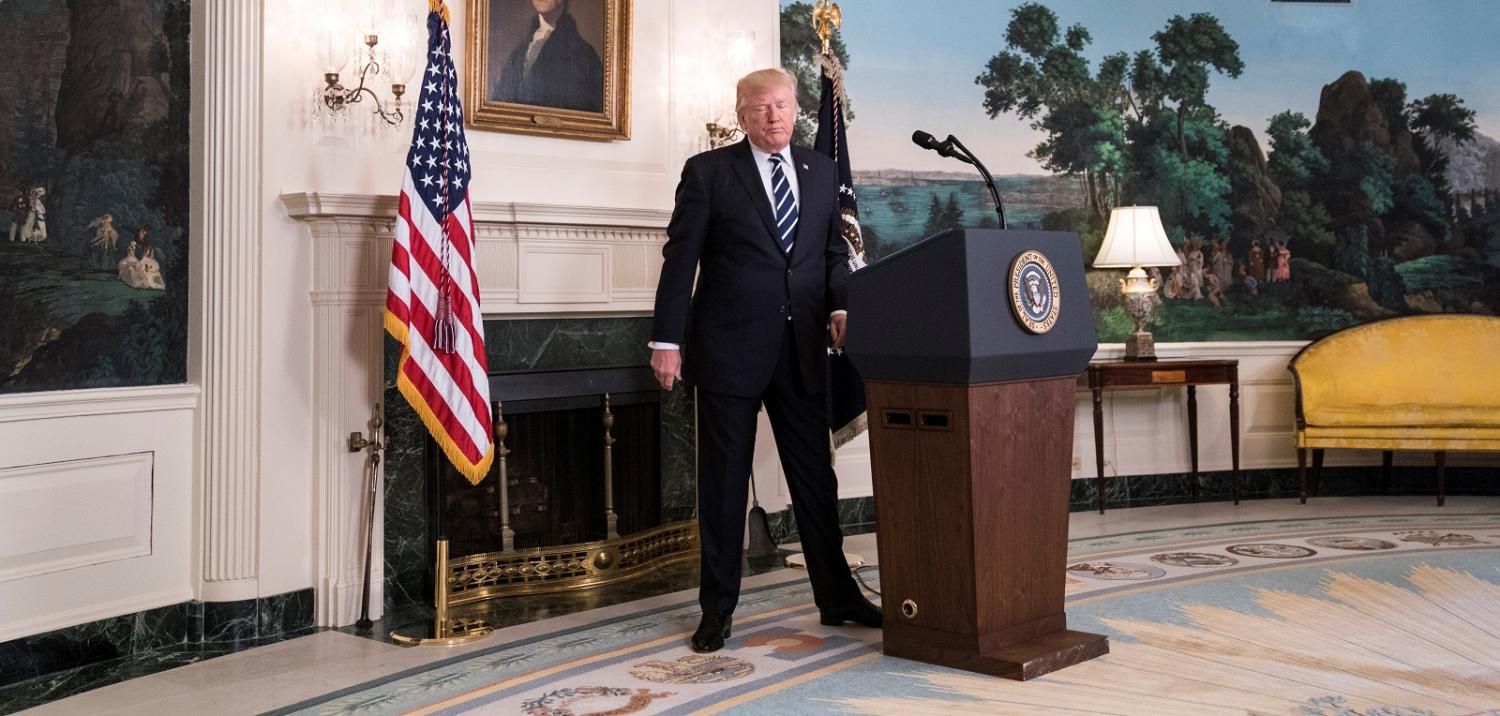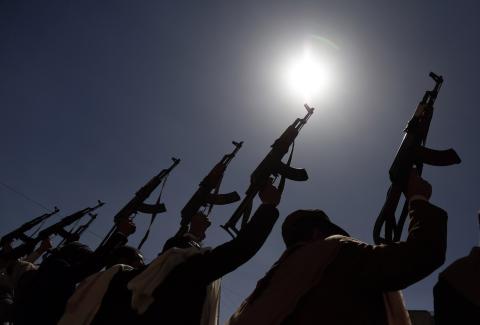Thirteen post-war US presidents have addressed the UN General Assembly, from Truman to Obama, from Kennedy to Reagan, but Tuesday's address from Donald Trump will surely enter the history books as the most hard-hitting speech delivered by an occupant of the White House in front of this global body.
Large sections of the speech were Twitter Trump as he repeated some of his angrier missives from social media. His Rocket Man taunt of Kim Jong Un started out as a weekend Tweet. If anything, his warning about totally destroying North Korea if it threatened America or its allies went beyond his online sabre rattling.
On Iran, Trump's strong hints that he may be about to withdraw the US from the nuclear deal negotiated by his predecessor in 2015 – a decision is expected by mid-October - are in line with other attempts, on climate change and healthcare, to overturn Barack Obama’s signature achievements. The notion that if Obama did it then it needs to be undone seems to lie at the heart of the Trump doctrine, both foreign and domestic.
In language and in tone, this debut General Assembly speech felt like the international affairs equivalent of his inaugural address, where he spoke of American Carnage. Some of the diplomats and commentators I spoke to afterwards were somewhat shell-shocked. Others, like Benjamin Netanyahu, were delighted. At the end of the speech, the cameras of UNTV cut to the Israeli prime minister applauding heartily, as if he had seen a showstopper in Broadway.
US officials had said that Trump’s speech would hug the right people and slap the right people, but they undersold this speech. It was smack-down sort of rhetoric. Ahead of UNGA, news organisations always roll out the showreel of memorable moments. Khrushchev banging a shoe on the lectern in 1960, and the like. Trump’s speech will join that list.
It was a very different Trump who addressed a forum on UN reform on Monday. Then, in his debut at Turtle Bay, he was restrained and respectful. Whereas at NATO in May, he had berated close allies about financial burden-sharing, he gave UN member states more of a polite nudge. Why, he even promised to help 'make the United Nations great' (note the absence of the word 'again'.).
When he won the presidency, many UN diplomats feared Donald Trump posed an existential threat to an organisation he described as a club where people simply talk and have a good time. But as the New York Times put it in this report of Monday's remarks: 'Instead of a tiger, they got a tabby'.
Why the turnaround? Someday a book might well be written How an Indian-American former South Carolina Governor and a Portuguese socialist saved the United Nations from a billionaire America First president. Admittedly, the title needs work, but the thesis is sound. Nikki Haley, the US permanent representative to the UN, has quietly made the case to Donald Trump that the global body he recently derided as 'Sad!' is a worthwhile financial investment. Antonio Guterres, the new Secretary General and the one-time UN refugee chief, has also been instrumental in persuading an ideological nemesis that this multilateral body can be a force for good in the world, and therefore of value to America.
After nine months in charge at UNHQ, the take on Guterres is that he is a better politician than a diplomat. The same could be said of Haley, the former Republican Governor who made her name when she pushed for the lowering of the Confederate flag outside the statehouse in a state where the first shots of the American Civil War rang out. Both have used their political smarts on Trump. In promoting UN reform – the streamlining of bureaucracy, the cutting of red tape and end of duplication among its overlapping agencies and the devolution of decision-making to the field – Guterres and Trump have become improbable allies: the billionaire president and the former socialist prime minister of Portugal. As they spoke the same language on reform, they looked like business partners.
'Terrific'. That’s how Trump described Guterres at a meeting with Security Council ambassadors at the White House a few months back. The feeling, one suspects, is hardly mutual, but Guterres has entered into a bromance of convenience, one that has involved frequently biting his tongue. At times, his public profile has been so low, out of fear of poking Trump, that it felt like he’s on a witness protection programme. But aides consider that is a price worth paying to secure the continued backing of the UN’s largest donor.
The UN has already given the Trump administration some early wins, the currency this President deals in. There were a couple of hard-hitting resolutions on North Korea, which Trump could rightly claim were the most stringent levelled against any country in years, maybe decades. The United States has also trimmed the peacekeeping budget. Nikki Haley has also emerged as one of the few stars of the new administration, eclipsing the US Secretary of State Rex Tillerson in the process. When Haley chaired the Security Council recently, as part of the monthly rotation, the nameplate in front of her reading 'President United States' seemed a portent of things to come.
Obviously, it is the fierceness of Trump’s speech before the general assembly rather than his more conciliatory remarks at the reform summit that will linger in the mind. Back in November, Americans elected an avowed America First president – and that’s what they got from the marble podium of the United Nations.

